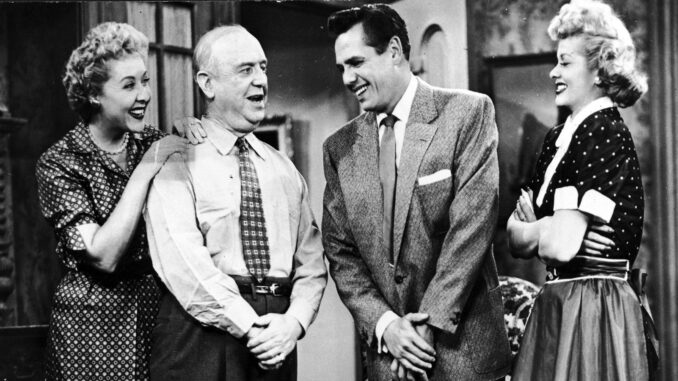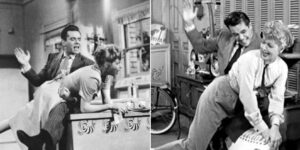
Introduction: Humor Through the Lens of Time
Humor evolves, just like society. What made us laugh decades ago might now make us cringe. Some jokes that were once crowd-pleasers have aged poorly due to shifting cultural norms, increased awareness, and a more inclusive world. Let’s take a deep dive into 10 jokes that haven’t stood the test of time and explore why they feel so out of place today.
1. The Casual Use of Stereotypes in Comedy
Why It Was Funny Then
Decades ago, jokes rooted in stereotypes about gender, race, or ethnicity were considered harmless fun. People laughed because these jokes reflected societal norms.
Why It Aged Poorly
Today, humor based on stereotypes feels lazy and offensive. Society has grown to understand the harm caused by perpetuating these narrow views.
2. “Boys Will Be Boys” Punchlines
Why It Was Funny Then
Jokes about boys being reckless or men behaving irresponsibly were a staple in comedy routines and sitcoms.
Why It Aged Poorly
In the modern era, such jokes dismiss accountability and reinforce outdated gender norms. Humor has shifted to celebrate responsibility and equality.

3. Fat-Shaming in Classic Comedy
Why It Was Funny Then
Weight jokes were once a staple of stand-up routines, with comedians poking fun at themselves or others for cheap laughs.
Why It Aged Poorly
With growing awareness of body positivity and mental health, these jokes are now seen as cruel and damaging rather than funny.
4. Misogyny Disguised as Humor
Why It Was Funny Then
Jokes about women being bad drivers or overly emotional were considered “normal” in the mid-20th century.
Why It Aged Poorly
Such jokes are now recognized as sexist, perpetuating harmful stereotypes about women.
5. Jokes About Mental Health
Why It Was Funny Then
Mental health was often a punchline in older comedies, with characters exaggeratedly portraying mental illnesses for laughs.
Why It Aged Poorly
Today, mental health is taken seriously. These jokes trivialize real struggles, making them inappropriate in modern comedy.
6. Cultural Appropriation in Comedy
Why It Was Funny Then
Comedians used accents or dressed in traditional attire from other cultures to generate laughs, often without understanding the cultural significance.
Why It Aged Poorly
This is now viewed as disrespectful and ignorant. Cultural appreciation, not appropriation, is the way forward.
7. Homophobic Jokes in the Spotlight
Why It Was Funny Then
In the past, jokes targeting LGBTQ+ individuals were normalized and rarely questioned.
Why It Aged Poorly
As society has embraced LGBTQ+ rights and inclusivity, these jokes are no longer acceptable. They marginalize and harm communities.
8. Punching Down at Marginalized Groups
Why It Was Funny Then
Comedy often relied on making fun of those with less power, like the disabled or the poor, to get laughs.
Why It Aged Poorly
Modern comedy values punching up at power structures rather than targeting the vulnerable.
9. Racial Caricatures in Classic Films
Why It Was Funny Then
Characters like exaggerated accents or behaviors were often included in films and TV shows to elicit laughs.
Why It Aged Poorly
Such portrayals are now seen as offensive and reductive, failing to respect the diversity of human experiences.
10. Jokes About Consent
Why It Was Funny Then
Older comedies sometimes made light of issues around consent, framing them as playful misunderstandings.
Why It Aged Poorly
With greater awareness about consent and boundaries, these jokes are now recognized as deeply problematic.
The Evolution of Comedy: A Necessary Shift
Comedy has always been a reflection of its time. While some jokes may have aged poorly, this evolution is a sign of societal progress. Humor that uplifts, challenges norms, and celebrates diversity is the future.
Conclusion
As society grows, so does our sense of humor. Jokes that once brought laughter can now teach us valuable lessons about empathy and inclusivity. The key to timeless comedy is respect—because laughter should bring people together, not tear them apart.
FAQs
1. Why do some jokes age poorly?
Jokes age poorly when societal values shift, making previously acceptable humor seem offensive or outdated.
2. Can older jokes be appreciated in their historical context?
Yes, but it’s important to acknowledge their flaws and understand why they no longer resonate today.
3. Are there comedians who successfully adapt to changing times?
Absolutely! Many comedians evolve their material to reflect modern sensibilities while still being funny.
4. How can comedy remain relevant?
By focusing on clever observations, universal truths, and humor that uplifts rather than divides.
5. What makes a joke timeless?
Timeless jokes often rely on wit, clever wordplay, or relatable experiences that transcend cultural shifts.